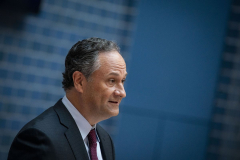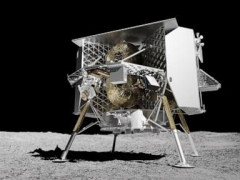LA PAZ, Bolivia — For most of Renan Aliaga’s adult life, a single name dominated the politics of Bolivia: Evo Morales.
Morales, a former union leader for coca farmers, founded the Andean nation’s most successful political party and transformed Bolivia over three consecutive terms marked by political stability and economic growth.
But when Aliaga goes to the polls on Sunday to vote for Bolivia’s next president, he won’t see Morales’ name on the ballot after electoral authorities excluded him.
In fact, for the first time in two decades, Aliaga won’t see any big name from the governing Movement Toward Socialism, or MAS, party that Morales founded — not even President Luis Arce, Morales’ protege-turned-rival, who withdrew from the race over his failure to halt an economic tailspin.
Under MAS, Bolivia enjoyed years of a fixed exchange rate, low inflation and subsidized energy. Now, high inflation, a scarcity of imported goods and fuel shortages have beset the country.
Arce handed the reins to a little-known minister, Eduardo Del Castillo.
The main options remaining include a conservative businessman and right-wing former president — both of whom have run and lost three times before — and a young leftist Senate leader.
Unsatisfied, Aliaga, a 39-year-old bus driver and former MAS voter, says he’ll make a last-minute decision.
“The right wing had its chance, and it was a disaster,” he said, recalling the hardship of the 1990s, when Bolivia became a poster child for free-market economics and the two right-wing front-runners — businessman Samuel Doria Medina and ex-President Jorge “Tuto” Quiroga — built their careers.
“But the left wing has proven to be the same, or worse,” Aliaga said, referring to how the MAS strategy of nationalizing resources and redistributing tax receipts sputtered out with the end of the commodities boom.
The main issues in this hotly contested election are Bolivia’s long-standing leftist economic model, its democratic integrity and the livelihoods of millions of people undergoing the country’s worst financial crisis in four decades.
“This seems the end of the cycle not only for MAS, but for an entire model of government,” Bolivia political analyst Verónica Rocha said.
Tensions within MAS can be traced to Morales’ disputed 2019 reelection. Protests erupted and the leftist leader resigned under pressure from the military. He fled into exile and right-wing Senator Jeanine Áñez took office in what many view as a coup.
Violent clashes between protesters and security forces killed at least 37 people.
Morales returned to Bolivia following the 2020 election victory of his former finance minister, Arce.
But their competing ambitions collided when Morales announced his intention to return to politics. Lawmakers loyal to Morales deprived Arce’s government of its majority. Judges answering to Arce ordered Morales’ arrest over his sexual relationship with a 15-year-old girl and barred his 2025 presidential candidacy on account of his past terms.
“MAS torpedoed its own chances of winning this election,” said Gustavo Flores-Macías, a professor of government and public policy at Cornell University.
A young vice president, Quiroga became interim leader in 2001 when then President Hugo Banzer, Bolivia’s former military dictator, resigned because of terminal cancer with a year left in his term.
Ever since, Quiroga has yearned for a term of his own. He ran three times — twice against Morales in 2005 and 2014. Now 65, he’s hoping the fourth time’s the charm.
Doria Medina, 66, a former minister of planning from 1991-1993 made his fortune in cement and owns Bolivia’s Burger King franchise. Dubbed the “eternal candidate,” he lost to Morales in 2005, 2009 and 2014, as Bolivia’s natural gas windfall, underwritten by public investment and generous subsidies, buoyed the union leader’s popularity.
When commodity prices slumped and gas production plummeted, Morales’ “economic miracle” went bust.
Now once-routine errands have turned into nightmares as Bolivians wait in fuel lines that wrap around city blocks, run from pharmacy to pharmacy in search of medicines and que





